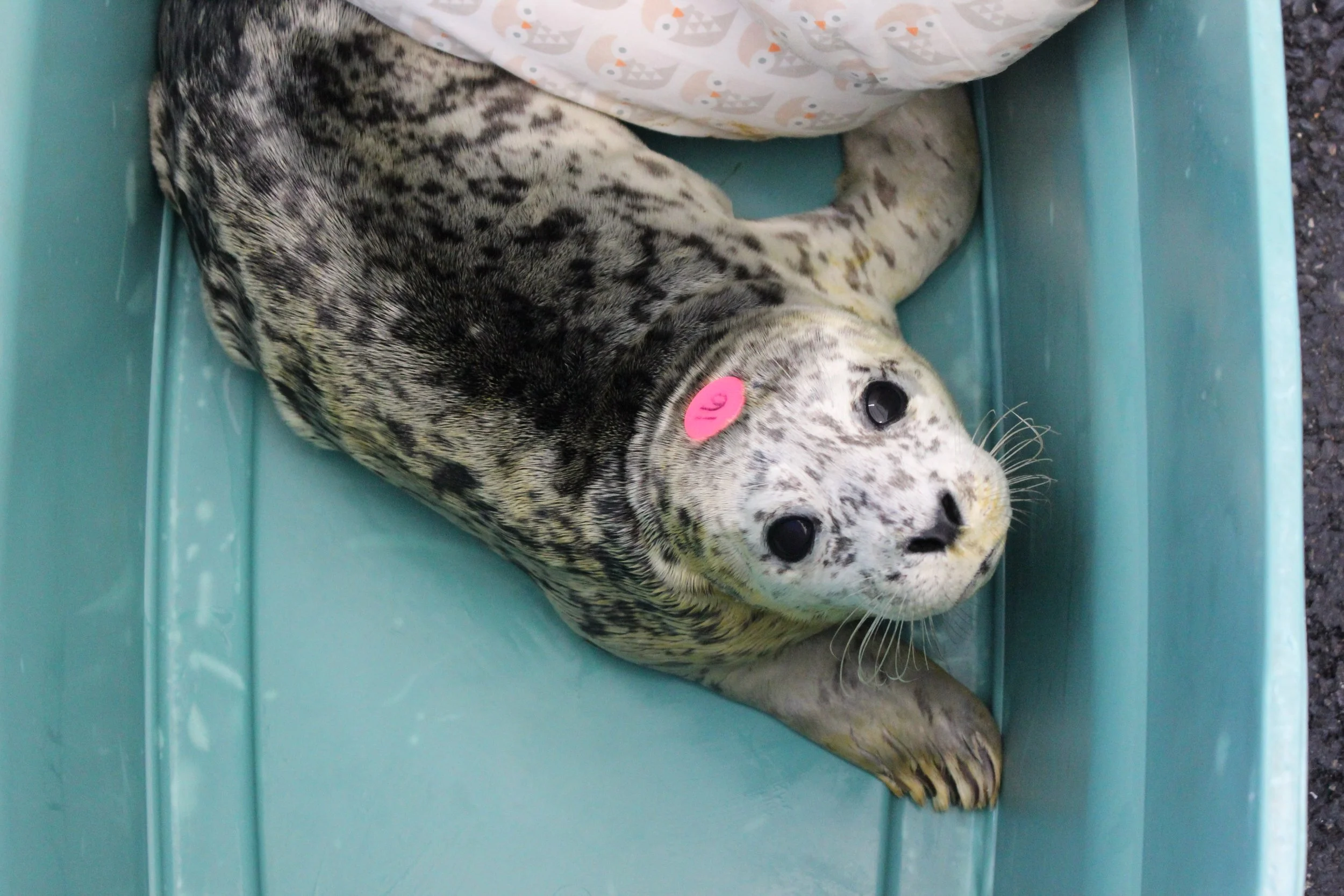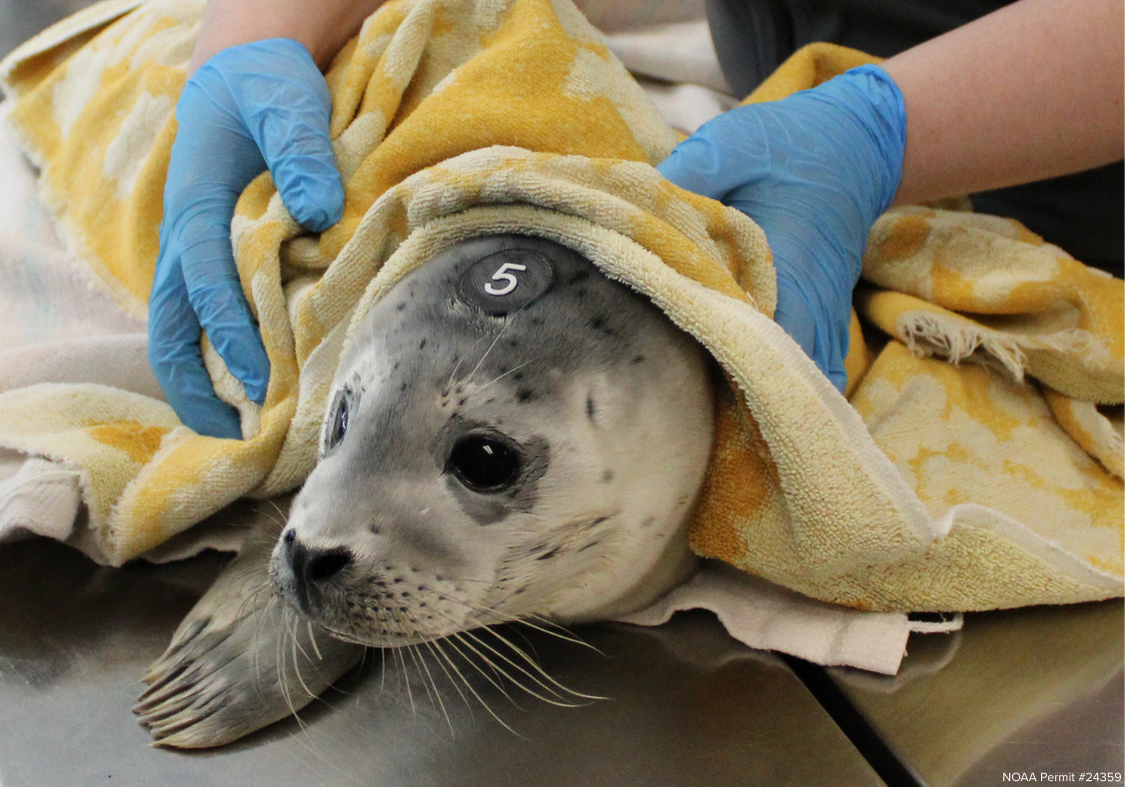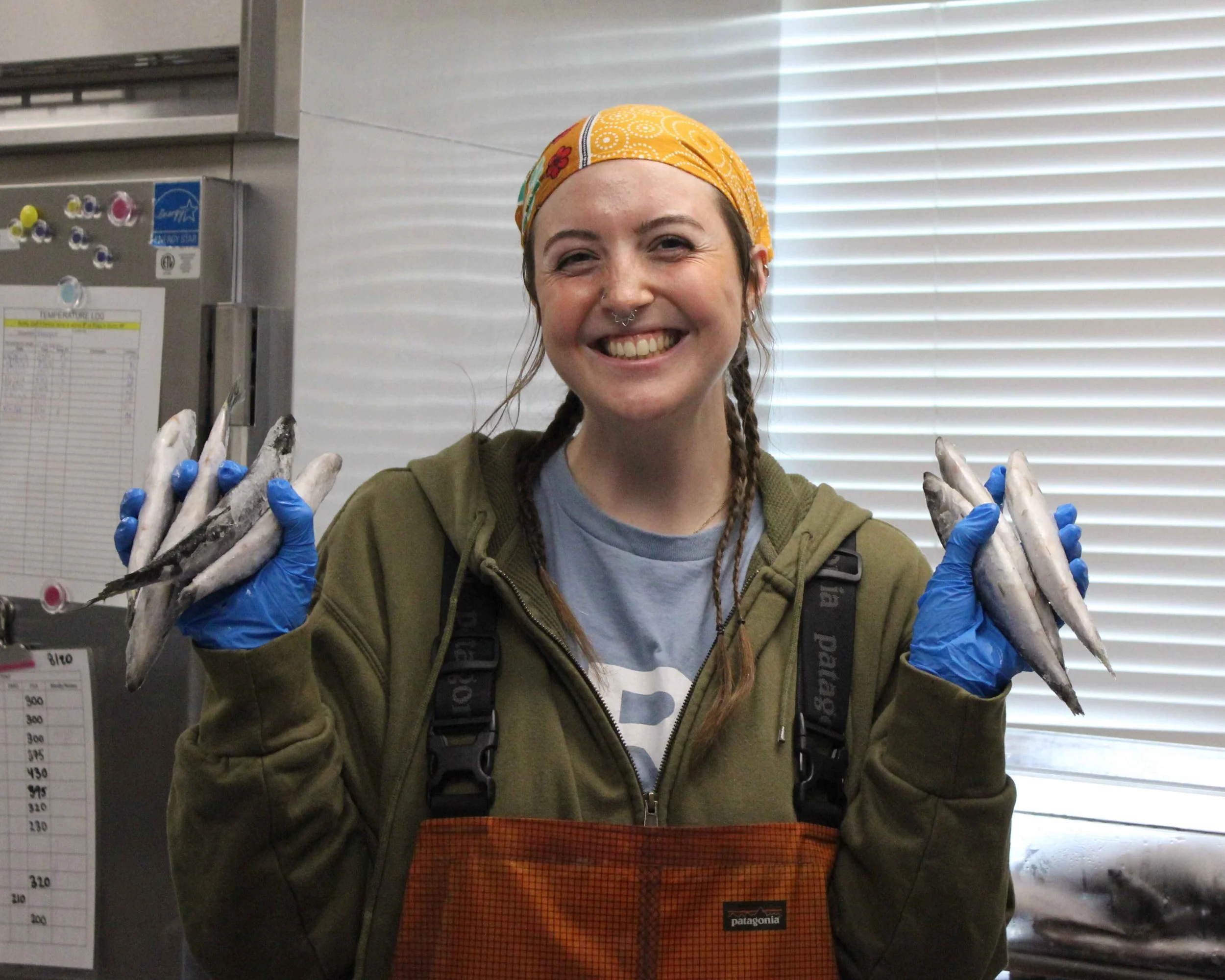
Response
SR3 responds to sick and injured marine wildlife throughout the Pacific Northwest.
An average of 1,000 marine animals are found stranded on Pacific Northwest coastlines every year.
SR3’s emergency first responders stand ready every day to deliver urgent care when marine animals are suffering.
Important data is collected during rescue operations, helping reveal the cause of stranding and address human impacts. With environmental protection issues on the horizon, SR3, the community and our network are all needed to help animals.
Rehabilitating sick and injured animals is the right thing to do. It is the humane thing to do. Stranded animals do not have to suffer. We have the tools, partnerships and commitment to give them a second chance. And your support helps make that possible.
Why We Respond
SR3 is always ready to help animals in need 24/7, 365 days a year.
Marine animals are increasingly suffering because of human impacts on their ocean home.
New threats to marine wildlife are emerging at a rapidly alarming rate – from entanglements in trash and fishing gear to depleted fish stocks to increased shipping traffic and oil spill risk. In addition to the many threats that marine animals are already facing, climate change is a compounding factor, forcing many species to shift their habitat and wander further from their home ranges.
Marine animals are early warning indicators of environmental changes impacting human health.
By responding to animals in need, we are also gaining insights into marine ecosystem health that might otherwise remain hidden. As human populations and their environmental impacts continue to expand, these insights will become increasingly important to identify and monitor emerging threats, lessen their impacts in the region, and effectively respond.
Where We Respond
Our Range
SR3 serves a total of 4,000 miles of coastline in Oregon and Washington state, including one of the world’s largest and most biologically rich inland seas, the Salish Sea. More than 3,400 marine species and 8 million people call the region home – from bustling beaches along the Seattle shorefront to rugged terrain on the outer coastline.
By Land
SR3 responds to sick, injured or orphaned seals, sea lions and other marine animals who strand along the coast. While harbor seals are the most common species to strand in the area, we also respond to endangered and threatened species, such as northern sea otters, Guadalupe fur seals and a variety of sea turtles.
By Sea
SR3 has a highly skilled and federally certified entanglement response team to help address the increasing problem of entanglement in trash and fishing gear. Our team trains new responders, conducts public outreach to increase reporting of entanglements, and leads emergency on-the-water response missions to help animals swim free again.
How We Respond
-
SR3 responds to hundreds of calls about wildlife concerns every year – from delivering hands-on care and coordinating field responses to providing expert advice and referrals. Many of these calls come from people like you who see a marine mammal in distress. With your support, our expert first responders are able to deploy whenever and wherever marine animals are struggling.
-
Prior to the opening of our SeaLife Rescue Center in 2021, there were very few options for rehabilitating marine animals in need. Today, SR3 is working tirelessly to strengthen collaborations with partners, leading efforts to facilitate responses, stabilization, and rehabilitation logistics.
-
Every response provides the opportunity to gather vital information about marine species that are otherwise challenging to study, from population health and disease outbreaks to foraging behavior and reproduction. Most importantly, we are able to gain insights into the reasons these animals are in trouble and how human impacts are playing a role in their suffering.
-
SR3 supports policies that protect and conserve marine life, including measures to reduce entanglement in fishing gear and debris, protect critical habitat, eliminate toxins and ensure healthy populations. Our research informs policy decisions and helps us advocate for changes that will benefit marine animals. SR3 also engages with the public and other organizations to build support for marine wildlife conservation and the importance of marine ecosystems.
Join the Wavemakers
•
Join the Wavemakers •
Donate monthly to help protect marine wildlife all year long while reducing fundraising costs. Plus, you’ll receive special benefits too!
Our Impact
From entangled killer whales to oil-spill threatened sea otters, SR3 is prepared to respond to a variety of marine animal emergencies. For more impact stories, join our pod to receive updates via email and follow us on social media.
SR3 Responds to Entangled Killer Whale
SR3 Participates in NOAA Whale Entanglement Trainings
Volunteers Help SR3 Prepare to Rescue Sea Otters
How You Can Help
Save a Life
None of this life-saving work is possible without the generosity of people like you. Your gift of any amount will go to work right away rescuing and protecting marine wildlife.
Stay Alert
If you see marine mammals, keep a safe distance. To learn more about marine mammal conservation, call us.
Stay Updated
Join our rescue community to get updates on our patients and current research delivered straight to your inbox or via social media.
Become a Volunteer
Whether you’re interested in animal care or education or just want to support where needed, there’s an opportunity for everyone to make a difference.













